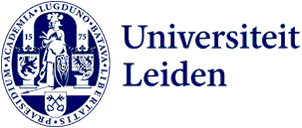
BrAInpower exhibition: tremendous and troubling uses of AI in our daily lives
Care robots, medical treatments, deepfakes and self-driving cars all with the aid of artificial intelligence (AI). The BrAInpower exhibition at Rijksmuseum Boerhaave shows spectacular applications of AI and explains how it can make such huge leaps. Bas Haring, Professor of Public Understanding of Science, is the guest curator. To what extent has he embraced super-fast computing in our daily lives?

‘Look at all those wonderful cables!’ Bas Haring exclaims at a computer case that has been opened to reveal a spaghetti of cables tumbling over the motherboard. The computer comes from 1968: ‘We consciously wanted to show more than just the latest hip AI gadgets,’ says Haring. He created the exhibition together with Ad Maas, a curator at Boerhaave. Haring: ‘Some people think AI is a scary technology that has suddenly emerged in the past ten years. I’m not going to say if you should be scared or not. But it’s important opinions on AI are based on fact. With this exhibition we want to explain that nothing magical has happened but that computers have gradually become faster, which makes more applications possible.’

Algorithms in dating apps
The exhibition therefore devotes a lot of attention to the development of calculation and measurement techniques. From ingenious early discoveries such as a two-thousand-year-old mechanism used to determine astronomical positions to matching algorithms in dating apps. Or the use of big data in cancer treatments. Haring: ‘I’m optimistic about many applications. It’s great that data makes it easier to treat diseases. And look at this invention by students from Delft: you can hang their computer up like a kind of radiator to heat rooms. Or my own watch that warns me if my train is delayed.’
Self-driving cars and crashes
But Haring also sees the downsides and dilemmas of AI. The exhibition highlights tricky issues such as: Do we want algorithms to decide what we see on our social media? And who is responsible if a self-driving car causes an accident? Haring: ‘The downsides are often not so much the technology but the choices made by users, such as the Tax and Customs Administration choosing discriminatory algorithms. I also wonder, for example, how we can continue to distinguish between real and fake with deepfakes getting better all the time – who knows, they could be used as false evidence in a burglary.’

AI and ethics
How can we as a society stop AI from going wrong? ‘STEM scientists and technicians sometimes think too little about the consequences and applications of their technology. We need to be more alert to this.’ Haring will teach the elective in AI and Ethics from January 2023 in AI and Computer Science programme at Leiden University. And for the youngest target group, children, he also has something in store. His children’s book entitled ‘Artificial Intelligence isn’t Scary’ will be published in October.
The BrAInpower exhibition can be seen at Rijksmuseum Boerhaave from 9 September to 5 March 2023.
The BrAInpower exhibition activity programme ties in with AI week (5 to 13 Sept) in this Leiden European City of Science year with lectures by scientists and experts, guided tours and an AI workshop for children.
Text: Linda van Putten
Photos: Rijksmuseum Boerhaave
